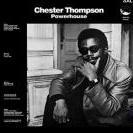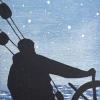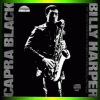Search the Community
Showing results for 'Patty Waters'.
-
Benny Waters featuring Art Taylor - Ziging and Zaging my copy is signed by Waters and dated 23 May 1971 which was the Saturday evening of the first edition of the Breda Old Jazz Festival where Waters was one of the headliners (besides Jabbo Smith). Given that this is 15 minutes from where I found the record, I guess Waters signed it after the concert... (That's Waters on 23 May 1971.) I guess, starting a new "Old jazz Festival" was kind of anachronistic already in 1971... incidentally, I was at the festival's 47th edition yesterday afternoon, it's not only Dixieland but also some Swing, Western Swing, Blues, Rock'n'Roll... still amazed that even after more than 45 years they can still invite fresh "Old Jazz" bands from the UK etc to meet at a festival like this...
-
Yeah - I returned to say that myself, but saw the Gator thread. Joe Fields was definitely there from about 1971 until he died. He didn't have quite so many old geezers as Norman got working for him, but a sufficient number, I reckon. Here's a list of all the people who recorded more than one album for him as a leader on Cobblestone or Muse. The old geezers didn't make so many albums as the younger geezers, so you'll find them towards the bottom, but this is a damn good bunch of musicians spanning all aspects of the mainstream of jazz at the time. Person, Houston 18 Murphy, Mark 16 Jones, Etta 12 Stitt, Sonny 12 Rodney, Red 11 Shaw, Woody 11 Ford, Ricky 10 Jackson, Willis 9 Cole, Richie 9 Earland, Charles 8 King, Morgana 8 Martino, Pat 8 Kloss, Eric 8 Burrell, Kenny 7 Roney, Wallace 7 Davis, Richard 6 Garnett, Carlos 6 Hoggard, Jay 6 Lytle, Johnny 6 Don Patterson 6 Ponder, Jimmy 6 Walton, Cedar 6 Barron, Kenny 5 Brown, Donald 5 Holmes, Groove 5 Jordan, Clifford 5 Vinson, Eddie 5 Bishop, Walter Jr. 4 Blackman, Cindy 4 Carvin, Michael 4 Catalyst 4 Coryell, Larry 4 Forman, Bruce 4 Hill, Buck 4 Jordan, Sheila 4 Pike, Dave 4 Plaxico, Lonnie 4 Schnitter, David 4 Spaulding, James 4 Visitors, The 4 Walrath, Jack 4 Adams, Pepper 3 Alexandria, Lorez 3 Barr, Walt 3 Barron, Bill 3 Bowie, Lester 3 Brooks, Cecil III 3 Cobb, Arnett 3 Cook, Junior 3 Edwards, Teddy 3 Hardman, Bill 3 Hendricks, Michele 3 Humes, Helen 3 Jefferson, Eddie 3 Johnston, Randy 3 Jones, Hank 3 Juris, Vic 3 Sasajima, Akio 3 Staton, Dakota 3 Tate, Buddy 3 Williams, Buster 3 Altschul, Barry 2 Andrews, Ernie 2 Bonner, Joe 2 Bronstein, Stan 2 Byard, Jaki 2 Chamberland, Linc 2 Cohn, Al & Zoot Sims 2 Creative Construction Company 2 Creque, Neal 2 Criss, Sonny 2 DeFrancesco, John 2 Donaldson, Lou 2 Eschete, Ron 2 Farber, Mitch 2 Friesen, David 2 Garland, Red 2 Goldstein, Gil 2 Green, Grant 2 Griffin, Della 2 Hayes, Louis 2 Heath, Jimmy 2 Hodes, Art 2 Jackson, Ron 2 Kenyatta, Robin 2 Lynne, Gloria 2 Matthews, David 2 McDuff, Jack 2 McGhee, Brownie & Sonny Terry 2 Members Only 2 Moody, James 2 Muddy Waters Blues Band 2 Newman, David 2 Ousley, Harold 2 Phillips, Sonny 2 Pierce, Bobby 2 Romao, Dom Um 2 Roney, Antoine 2 Schwartz, Jonathan 2 Scott, Shirley 2 Shaw, Charles "Bobo" 2 Tarrés, Fernando 2 Tucker, Mickey 2 Witherspoon, Jimmy 2 Woods, Phil 2 (Can't say I like all these musicians - and some I've never heard of, though there are many of my heroes here - but as far as I can see, it's mainstream stuff.) Joe fields didn't depart from this line of work, with the HighNote and Savant labels until he died, and Barney is carrying on, by the looks of it. It is relevant to note that before he started Cobblestone in partnership with Don Schlitten, Joe worked for Bobby Weinstock at Prestige. Very likely, the sale of Prestige to Fantasy left the two of them (and Bob Porter, who was Westbound) needing gainful employment. But all those labels carried the banner of Prestige. Joe is another of my heroes. MG
-
Carlos Garnett on "Holy Waters" ....
-
My post count shows I come here infrequently, but since Bill was one of my closest friends I needed to resurface. I was Deke Thornton on Jazzcorner and Huck Hausmaus on the AAJ board; Bill got me involved with those in the early 200s, and I had goofy fun contributing to the collaborative stories, some of which he started. Bill and I met in Fall ‘75 when we worked at the University Square Four theaters in Madison, Wisconsin. We started socializing after a little while, and started talking about music. He was a rocker then; I was listening to some jazz. By the end of that school year he’d begun to navigate the jazz waters, and it didn’t take him long to eclipse me in his interests and knowledge. At a desultory party in the apartment I shared with two other people he tried to persuade me to give up trying to invigorate the partygoers with Motown and instead put on Cecil Taylor’s Silent Tongues. He often cited the Ann Arbor Festival of September 1978 as one of his greatest concertgoing experiences. He’s left Wisconsin to attend Michigan law school, and I, along with two other guys from Madison, made the trip and joined him. It was a fantastic lineup: Dexter Gordon, Johnny Griffin, Max Roach, Mary Lou Williams, Stan Getz, the Messengers with a young Bobby Watson, many more including his beloved Sun Ra (the first time any of us had seen the Arkestra). We saw much more jazz over the next few years, in Wisconsin, in Ann Arbor, a few times in Chicago. He stayed with me and my family a couple of times in DC, where we caught some music, and I spent one night in his family home in Northern Wisconsin, where there was no music that appealed to us at the time. The last time I saw him was Summer 1995, when he visited DC with his wife and son. His free time was limited but we managed to spend part of a night at the One Step Down - conveniently close to their hotel. We remained in contact, though - he was second to none as a correspondent. Even after he went to the hospital he texted me that he’d quit spotify because of Joe Rogan’s b.s. and transferred his (9,580 songs!) to Apple. When the texts stopped coming I learned he’d been put on a ventilator and sedated. I miss him a lot.
-
Too f*ing busy to get in early, Everything's ID-ed right? but...anyway... TRACK ONE - yeah, the pigeons. Remember when pigeons and squirrels were cute? What were we thinking? Thad, otoh, perfect significantly more often than not. TRACK TWO - Only on Emarcy! At that time, anyway. I have to wonder what the "critical consensus" was about Dinah Washington in her time. Today, if we get an Afri8can-American Female Singer who sings in a lot of different popular contexts with different levels/types of production, there's a lot of cringing and equivocating and wishful thinking that comes, and...really? Singers can sing any damn thing they can sing. Not that the7 always do, but...Dianne Reeves, for one example (and Ledisi for another...), are always/usually approached from a distance when they venture into more "popular" areas, and, I say fuck that. If they're singing, they're singing. Period. Anyway....I love Dinah Washington. TRACK THREE - Ok, not identified! The opening phrase references "What A Difference A Day Made", so that transitions out of Dinah nicely. Is Sounds like a pop song, in a good way, something that can be sung, with words. A "For Lovers" type vibe, in a meaningful way. Can't say I find it particularly compelling, but oh well. I like it. TRACK FOUR - But of course. Some really stealth Ed Blackwell here, btw. Mal/Reggie, obviously, but listen to Blackwell keeping it full-bodied and forward-moving.Reinforcing that, actually. TRACK FIVE - I like the writing, but the trombone player sounds like better days (years?) have been had? Tenor player plays thoughtfully, I like that. Sounds "local" in a good way, not running the impress-licks. I like it for staying inside itself. TRACK SIX - Yeah, ok. I have that record two, ha. lot of good that does me, right? As stated earlier, the "Windows" feel kinda bugs me, once is enough, ok? I keep waiting to hear Hubert Laws. But she was an excellent player in her own right, and her record is most worthy of being remembered. TRACK SEVEN - Yeah, I do like this. Especially the second part, especially the air raid. Actually, that's my favorite part. We have community sirens here that go off to warn of tornadoes and shit, so that's not a foreign sound to be, but it's great to hear it fleshed out like this. I like it a lot more than the first part, which, hey, Sonny Sharrock been there and done that. But the air raid, that's till fresh waters imo. Again, I like it. TRACK EIGHT - Ok, I thought this was familiar, but not until it was ID'ed did it click. Somebody, here or elsewhere, put up a YouTube clip, or a circulating file, I don't remember what it was. No matter. That's a bit of an "all-star" band (Charles Owens played with both Buddy Rich and John Mayall!!!!), and also one with a shared history. It's the shared history that really delivers the power here, power aplenty. Kamasi Washington came of of this same environment, remember, so....community. Not gigs, not hustling to get on top of the other guy, community, no bullshit corporate endowments to shut out everything else, a solid, ongoing community of spirits and souls.. TRACK NINE - Nice to know the name, and to have it confirmed that it's AACM, that's where I was leaning, but not into the AEC. Another community. I love communities. Ari Brown, eh? Sweet! Avreeayl Ra & Harrison Bankhead are names I know (and trust!), the other names, I do not know, but sounds like I should. Leon Q. Allen? Great anme, and fine playing. I like the poem, too. "Mama Rose" from another family, and you know there are many more such people, they are not isolated in the word (although they are from the general consciousness...). Strong statements being made here. And strong is the word I'd use for this collection. Happy to have been able to hear it, thanks for sharing this music, this way.
-
Sir Jonathan Gasser Electric Light Orchestra Elsie and Doris Waters
-
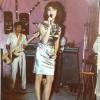
Pete Cosey
kh1958 replied to Chuck Nessa's topic in Jazz In Print - Periodicals, Books, Newspapers, etc...
Muddy Waters died in 1983. I believe there was a Muddy Waters tribute band consisting of former band members. -
Inspired by a post by @jazzbo in the Listening to Thread. Due to industry norms that assume that "Blues" is a thing played by a man with a guitar, possibly backed by bass and drums, some of the greatest Blues LPs are found not in the Blues section of your hypothetical local record shop, but hidden in the Jazz section. Obviously, the dividing line between what is Blues and what is Jazz is nebulous and sometimes it is a pointless distinction. What I am looking for are (i) records that feature Blues singers, (ii) singing with groups of any size, (iii) playing compact Blues tunes without much in the way of expansive Jazz song structures, (iv) which are classed as "Jazz" by the music industry, but (v) which any Blues fan of taste would immediately recognise as being within the wider Blues "genre" that he/she loves. This is a different thing from a jazz musician who "plays the blues" or is a Blues specialist. I am thinking about records that would appeal to a lover of Muddy Waters who is not interested in Charlie Parker, Jimmy Smith, or the 3 Sounds. Some examples: Earl Hines & Jimmie Rushing - Blues & Things Eddie Cleanhead Vinson - You Can't Make Love Alone Count Basie - At Newport What other examples of classic blues records (LPs only, no compilations) can you think of that hide out in the jazz section?
-

Great Blues LPs in the Jazz Section
danasgoodstuff replied to Rabshakeh's topic in Miscellaneous Music
Yes, I know, no vocals. But its lead off tune "Chitlins Con carne" did make it into the repertoire of 'real blues' groups like Jr, Wells' and Jimmy Dawkins'. And I've found many blues fans do enjoy stuff like this, and Jimmy Smith, etc. as well as Muddy Waters, et al. And some don't - but then not all blues fans like the same indisputably blues singers. And the very concept of 'blues singer' has been questioned by some too. -
I don't fully understand this as a series of connected statements. Either there is a natural separation between genres (not necessarily the music industry's), with spaces in between on a Venn diagram, or is there is no real separation and it is artificial. I don't think it's possible to reach an answer since both views are wrong and right. Clearly music is neither a monolithic thing nor is it cleanly divided among any generic lines, let alone those used by mainstream vendors in the 1990s. I personally favour your Venn diagram analogy. That fits how I personally listen. The old record store division into genres, whilst based on something that did exist somewhere, is clearly too artificial to reflect reality. But my main issue with it is that so much is lost in this cut up approach. Precisely those Venn diagram overlap areas. This thread is aimed at precisely that: there are so many records that your average Muddy Waters fan would love but which he/she will not hear, because they are presented as forming part of esoteric, difficult, jazz.
-
April 29, 2008 Lost: Roger Waters' Pig By REUTERS Filed at 5:16 p.m. ET LOS ANGELES (Reuters) - Organizers of a major California music festival are offering a $10,000 reward and four festival tickets for life in exchange for ex-Pink Floyd frontman Roger Waters' two-story inflatable pig, which was lost on Sunday night. Waters' signature pig was seen floating away during his closing set at the three-day Coachella Valley Arts and Music Festival, held in the desert east of Los Angeles. The giant flying pig, part of Pink Floyd's stage show since their 1977 album "Animals" featuring the song "Pigs on the Wing," broke free from its tethers above the Coachella crowd and drifted off. It's not the first time Waters has lost his flying pig. Back in 1977, it floated away on the second day of a photo shoot at the Battersea Power Station in London and was later recovered and used for an album cover. Waters was a member of British rock band between 1965 and 1985. He and the band continued to use the pig as a stage prop even after he quit, and at Coachella Waters played classic Pink Floyd songs including "Mother," "Shine On You Crazy Diamond," "Have a Cigar" and "Dark Side of the Moon." Coachella was named one of the top three festivals in the country by music magazine Billboard. Last year, the festival attracted more than 186,000 music and art lovers, and grossed $16.2 million, according to the magazine. Anyone with information on the lost pig, should email lostpig@coachella.com.
-
Kinobe and Michael Waters, Nomad
-
I think that as a music, a lot of it was premature and forced. as a concept, though, it's instincts were true and continue to be relevant. It's impossible to be in the world as it flows and not get, at the very least, splashed by all the waters. Ran Blake is/was the chairman of the Third Stream Department at the New England Conservatory of Music: https://www.ranblake.com/ran The Newest Sound Around was encouraged and informally supervised by the man who would become Ran’s most significant mentor and champion, Gunther Schuller. The two began their forty-year friendship at a chance meeting at Atlantic Records’ New York studio in January 1959. Less than two years earlier, Schuller had coined the term “Third Stream” at a lecture at Brandeis University. Schuller was recording on Atlantic Records with future jazz legends John Lewis, Bill Evans, Eric Dolphy, and Ornette Coleman. Ran accepted what he calls “a low-level position” at Atlantic that allowed him to be close to inspirations like Chris Connor, Ray Charles, and Harlem’s famous Apollo Theater. Schuller immediately saw the potential of Ran Blake’s unorthodox but unique musical style, and invited him to study at the Lenox School of Jazz in the summers of 1959 and 1960. While in Lenox, home also to Tanglewood, the classical music mecca in western Massachusetts, Ran studied with the jazz giants who formed the faculty of this one-of-a-kind institution—Lewis, Oscar Peterson, Bill Russo, and many others—and began formulating his style in earnest. He also studied in New York with piano legends Mary Lou Williams and Mal Waldron; other teachers included Bill Russo, Bill Evans, John Lewis, Max Roach, Oscar Peterson, and Stan Kenton. During those years he became close to Thelonious Monk and his family, and according to Nellie Monk, was the most trusted babysitter for their children. Monk remains Ran’s favorite pianist. A year after Schuller became President of Boston’s New England Conservatory in 1967, he created the first department in the U.S. to offer a degree in jazz studies. Ran was invited to join other remarkable artists on the faculty Schuller was assembling, including George Russell, Carl Atkins, Jaki Byard, Jimmy Giuffre, and others. In 1973, Ran became the first chair of the Third Stream Department, which he co-founded with Schuller at the school. The department was recently renamed the Contemporary Improvisation Department, to acknowledge its evolution beyond Jazz and Classical to embrace the incredibly rich and varied World Music traditions. Ran Blake’s teaching emphasizes what he calls “the primacy of the ear,” described at length in his 2010 book of the same title. His innovative approach elevates the listening process to the same status as the written score. This approach complements the stylistic synthesis of the original Third Stream concept, while also providing an open, broad based learning environment that promotes the development of innovation and individuality. Musicians of note who have studied with him at NEC include Dominique Eade, Don Byron, Matthew Shipp, Sara Serpa, and John Medeski.
-
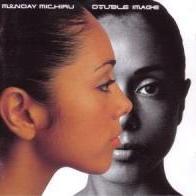
Dallas, Austin, Houston, San Antonio, Etc. Jazz & Other Concerts
JSngry replied to kh1958's topic in Live Shows & Festivals
This just in...whoa.... N A M E L E S S S O U N D P R E S E N T S JAZZ SINGER PATTY WATERS PATTY WATERS w/ BARRY ALTSCHUL - drums BURTON GREENE - piano MARIO PAVONE - bass MONDAY April 9, 8PM MECA 1900 Kane St. GENERAL SEATING. PAY WHAT YOU CAN / PAY WHAT YOU WILL. Call or email us if your preferred amount is not listed: 713-928-5653, administration@namelesssound.org EVERYONE UNDER 18 GETS IN FOR FREE. -
Jazz and tangential channels (I hesitate to include the smooth jazz channel). The first three are mostly jazz, I'd say. 67 - Real Jazz - Duke Ellington, Dizzy Gillespie, Miles Davis, John Coltrane, Wynton Marsalis, Christian McBride 70 - Seriously Sinatra - Frank Sinatra, Tony Bennett, Ella Fitzgerald, Peggy Lee, Dean Martin, Nat King Cole, Michael Buble 71 - 40's Junction - Glenn Miller, Artie Shaw, Benny Goodman, The Dorseys, Bing Crosby, Duke Ellington, Count Basie 74 - BB King's Bluesville - Eric Clapton, BB King, Stevie Ray Vaughan, Muddy Waters, Buddy Guy, Etta James, Robert Cray 66 - Watercolors/smooth jazz - Sade, Dave Koz, Brian Culbertson, Boney James, Maysa, David Benoit, George Benson, Al Jarreau 68 - Spa/New Age - Peter Kater, Steven Halpern, Brian Eno, Paul Winter, Tangerine Dream, Mark Isham, Will Ackerman 69 - Escape/Easy Listening - Percy Faith, Bert Kaempfert, John Fox, James Last, Henry Mancini, Richard Clayderman, Caravelli
-
ECM Florian Weber Lucent Waters Ralph Alessi: trumpet Florian Weber: piano Linda May Han Oh: double bass Nasheet Waits: drums Release date: November 2, 2018 ECM 2593 B0029236-02 UPC: 6025 675 1588 3 Florian Weber’s second ECM appearance, following a critically-acclaimed duo recording (Alba, 2016) with Markus Stockhausen, finds the gifted German pianist leading a newly formed quartet through a program of his compositions. Openness is key here: whether paying tribute to mentor Lee Konitz on “Honestlee”, impressionistically conveying the glittering “Melody of a Waterfall”, or generating impactful outcomes from fragments of material on a conceptual piece like “Butterfly Effect”, the intention is to encourage fresh responses from the participants. “I see this album as a meeting of very independently-minded musicians,” says Weber. “It’s the first time I’ve had a band where what particularly interests me is the difference between the players and their approaches to improvising.” He cites the contrast between the soulful, grounded quality of Linda May Han Oh’s bass playing and Nasheet Waits’s fleet, free-flowing drums. “Linda and Nasheet are very different characters, but they balance each other in their exchanging of energies.” The Lucent Waters line-up marks a first collaboration between Weber and Waits, the drummer being recommended by producer Manfred Eicher for the project. “I liked very much Nasheet’s playing on Ralph Alessi’s ECM albums [Baida and Quiver], those are great recordings, so the idea resonated with me.” Linda May Han Oh and Florian Weber first worked together in trio with Lee Konitz a decade ago. “That was the beginning of a vivid exchange of ideas that has continued in other contexts. For myself, working with Lee night after night taught me what it really means to be spontaneous in the music.” There’s a difference, Weber suggests, between the contemporary emphasis on “self-expression” and “exploring what is actually there, implied in the material and in the interaction of the players.” Weber and Ralph Alessi have been in and out of each other’s groups for more than 15 years. Latterly, Weber’s been playing in Alessi’s trio with Dan White. “If I look at my career to date, I’ve mostly tried to play with people that I feel close to, that I understand where they’re coming from, emotionally.” Friends, of course, can still challenge each other: “Ralph always says that my writing and playing pushes him to play differently.” This is strikingly evident on “Fragile Coccoon”, where an initially gentle piece bursts open to feature the trumpet in a blazing admixture of lyricism and intensity, framed by Waits’ dramatically powerful drums. There are, says Weber, several factors influencing the pieces gathered here. “Pieces emerge, a lot of times, as a feeling or a perspective on some aspect of my life – in this case the twilight atmosphere of the touring musician’s world, and all the ups and downs of that. Then there’s the compositional aspect: I’m always trying to create or shape something which hasn’t, to my knowledge, been there before.” The degree of freedom given to the players differs from piece to piece. “On ‘Brilliant Waters’, for instance, I didn’t give them much more than the title: that’s a free, open piece, although we end organically on one note, which does sound composed. I did tell the group that I wanted the album to have a sense of narrative, with interconnecting links, of some kind. A motif that appears in one piece might recur in another piece, perhaps reversed. Atmospheric ideas return, two pieces may have a similar instrumental emphasis at certain points, or a soundscape may be similar. As a bandleader I think there’s a fine line between giving musicians too much information and not giving them enough: I wanted the musicians to make their own thing, too.” Nasheet Waits has the freest role in “Melody of a Waterfall”, which takes its inspiration partly from traditional Japanese drum ensembles: “I like the clarity and focus of that music, its stillness as well as its passion and energy. I find Japanese culture and its ideas fascinating and have tried to understand it – insofar as one can, as a westerner.” “From Cousteau’s Point Of View” references some recent diving experiences: “The changed three- dimensional perspectives and transparency are central to this tune. Musically it’s 3 against 7, both times going on at the same time, and you’re not sure which one you should follow. I like transparency, but too much of it can make the mystery disappear. And I also like the mystery, just as I like the things that are not said, and the notes not played.” “Honestlee”, dedicated to Lee Konitz (“every time I meet Lee I learn something new” says Florian), incorporates “some Lennie Tristano School ideas, but not Tristano-style playing. It explores some ideas he had about lines and counterpoint.” The piece also takes impetus from drawings which Karlheinz Stockhausen made at Darmstadt. “The drawings illustrate some polyphonic concepts. I looked at them and immediately wanted to write a tune. Wanting to dedicate something to Lee, the ideas converged. So we start with lines and then go into open mode.” Weber’s playing, exemplary throughout, is particularly affecting here. (Konitz, on hearing this recording, has said “Florian is one of the most creative piano players I have ever played with. His music is totally free. He has got the texture, the feeling, just beautiful. I am very touched by this music. It feels divine to me.”) * Born into a musical family in Detmold, Germany, in 1977, Florian Weber began playing piano at the age of four, and by the time he graduated high school was appearing with both jazz and classical ensembles. In Cologne he studied with Hans Ludemann and John Taylor, before heading to the USA and further studies with teachers including Paul Bley, JoAnne Brackeen, Danilo Pérez and Richie Beirach. In 2002 Weber founded Trio Mensarah with bassist Jeff Denson and drummer Ziv Ravitz. By 2006, Lee Konitz was playing with the group which subsequently formed the basis of his New Quartet, touring widely and recording a prizewinning album at New York’s Village Vanguard. In 2011 Weber founded the group Biosphere with guitarist Lionel Loueke, bassist Thomas Morgan and drummer Dan Weiss. Florian Weber also continues to play with trumpeter Markus Stockhausen. The intuitive music of their ECM album Alba was praised for its “natural warmth and character” by The Times of London. For further details, including upcoming dates, visit www.florianweber.net and www.ecmrecords.com * Lucent Waters was recorded at Studios La Buissonne in the South of France in September 2017 and produced by Manfred Eicher. ECM Andrew Cyrille Lebroba Wadada Leo Smith: trumpet Bill Frisell: guitar Andrew Cyrille: drums Release date: November 2, 2018 ECM 2589 B0029217-02 CD: 6025 677 5528 9 LP: 6025 770 5563 8 Andrew Cyrille’s 2016 release The Declaration of Musical Independence gave notice that one of the drumming innovators of new jazz had taken his conception of group playing to another level of development, and the space-conscious Lebroba, with Wadada Leo Smith and Bill Frisell, applies further fine-tuning. The album’s title is a contraction of Leland, Brooklyn and Baltimore, birthplaces of the protagonists of a recording which brings together three of creative music’s independent thinkers. Each of them made his first ECM appearance long ago. Drummer Andrew Cyrille appeared on Marion Brown’s Afternoon of a Georgia Faun in 1970, trumpeter Wadada Leo Smith on his own Divine Love in 1978, and guitarist Bill Frisell in 1979 on Eberhard Weber’s Fluid Rustle, with his leader debut In Line following in 1982; these are, of course, players of enduring influence. In recent seasons, Cyrille has been heard on Ben Monder’s Amorphae, Wadada has recorded with Vijay Iyer on A Cosmic Rhythm With Each Stroke and Frisell has introduced a duo with Thomas Morgan on Small Town. Andrew Cyrille and Wadada Leo Smith first played together in the early 1970s in a period when some of the trailblazers of Chicago’s AACM were relocating to the New York region. In the late 1990s they came together again in the quartet of bassist John Lindberg. Their reunion in the Lebroba trio with this recording - made at New York’s Reservoir Studio - was suggested by the album’s producer, Sun Chung. Always a generous leader, Cyrille gives plenty of room to his cohorts, who also bring in compositions, with Wadada’s elegant four-part suite dedicated to Alice Coltrane unfurling slowly over its 17-minute duration. Written and open sections are interlaced, with a free role for the drums in the closing moments. “I didn’t want to play all the time,” Andrew explains. “I wanted to play rhythms with spaces between them, and to play melodically, in relation to what Wadada and Bill were doing…” Creative energies are pooled also on the spontaneously created “TGD”, credited to all three players, Reviews of Cyrille have often emphasised the elemental strength of his playing (“his energy is unflagging, his power absolute”, the All Music Guide notes). Yet even in contexts calling for unconditional drive – such as Cecil Taylor’s celebrated trio with Jimmy Lyons (of which Andrew was a member for more than a decade) – there always was a differentiated methodology at work in the drumming. Still, as Kevin Whitehead writes in the CD booklet, the release of The Declaration of Musical Independence in 2016 “took some listeners by surprise. There Andrew’s new elliptical style unfolded – a style, he says ‘where the meter is implied but not inferred’.” Bill Frisell contributed to the Declaration album, but Lebroba marks a first-time meeting for the guitarist and Wadada Leo Smith. “If there is a continuity of concept between the Declaration quartet and this trio,” says Cyrille in the liner notes, “the linchpin is Frisell. The music is different, but the concept is about the same. And then Wadada brings in his voice and his philosophy.” With no bass and no keyboards this time, the ensemble texture is more transparent than on Declaration and with Cyrille sometimes reducing his sound to a discontinuous groundswell, there are plenty of the charged silences and open spaces that Wadada Leo Smith loves to play into. Bill Frisell’s history includes extensive work with another bassless trio, Paul Motian’s trio with Joe Lovano. “Andrew does remind me of Paul in a way,” says Frisell. “People describe their playing as free or abstract and overlook the feel: the deep, deep beat coming from a deep, deep place.” Even unstated, its presence is felt on Lebroba, not least on Andrew’s tunes, the bluesy title piece, and the graceful ballad “Pretty Beauty”.
-
A BFT full of surprises. In addition to the Bill Easely CD, I've got the Benny Waters CD, the Hollyday Brothers LP and obviously, the Gene Harris Quartet CD, but none of the other issued items. It is a bit of a challenge to include an obscure player like Cliff Smalls on an unissued session. Thanks for taking the time to expose me to stuff that I've never heard, or even seen...
-
Man, the convo in this thread ain't easy to follow. So far I think the tally is: 1 - Bill Easley with the album linked to its All Music review that KD wrote 3 - John Board from I don't know the album 4 - Is this the Benny Waters track? 5 - Russell Garcia with the track linked to YT. I like this one better the first time I heard it. On follow up listening it's kind of meh. Unfortunately. 6 - Richard Hollyday doing his McLean impression on the album that's pictured in the above post (right? I actually have no idea) 7 - Capt. Growls but I'm not sure whose alias that is. 9 - Frank Foster & George Arvanitis live in France somewhere 10 - Well you Needn't...this has to be the Clayton Bros correct? James Spaulding on alto ID'd. 11 - Is this the Hal Singer track? Whoever recorded it shortchanged the sax player with this sound. I just keep thinking "Take some sudafed and advil and come back in 20 mins" 12 - Gene Harris' Little Light 13 - Percy France Track 8 is remaining a mystery so far right?
-
Asking $25 USD. Shipping cost will depend on your location. Local pick up in Toronto. Offering a 4 CD set of music recorded during performances at the International Jazz Festival of Montreal from 1980 to 2000. Featuring a variety of artists: Muddy Waters, BB King, Albert Collins, Buddy Rich, Dave Brubeck, Chick Corea, Ella Fitzgerald, Miles Davis, Jaco Pastorius and Stephane Grapelli to list just a few. I will have other CD's and set on offer as well. Contact me if you need more information on this set: consummate_red@yahoo.com
-
Ethel Waters, Hawk, Roy, and Jo Jones were guest stars on an episode of the long-gone television series "Route 66". Does anyone know whether the soundtrack to that show ever made it onto LP or CD?
-
Yes, Claytons. So which track might be the Claytons? For that matter, which is Singer? Which is Easley and Benny Waters?
-
Waters under the bridge. No.
-
OK so let's start the hints by pointing out that jsngrey used Shazam to ID Bill Easley and Benny Waters. I would think anyone could ID track #s and with a little bit of time perusing discogs, give full info. (OK not really a hint, but an invite to complete the hack and finish the IDs.)
-
+1 Good twofer can be had on BGO. The first album was really quite interesting, with some good pop on the first side ("Holly Be Home" is actually quite stunning, and along with some strong and interesting jazz on the second side, though very of it's time (ca. 1970). Jazz guys (Breckers, Abercrombie, Cobham) along with some basically invisible rock guys whose future credits included playing bass for Billy Squier, playing with Clarence Clemons, studio work with the Weather Girls. The second album was actually pretty awful, as they brought in Steve Cropper of Booker T. & the M.G.'s to produce, further muddying the already opaque waters.
-
Cheating now...Bill Easely is a name I tend to ignore, but every time I hear him, I kick myself doing so. Same thing here. Ok, Benny Waters comes by it more than honestly!
_forumlogo.png.a607ef20a6e0c299ab2aa6443aa1f32e.png)


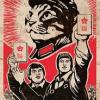
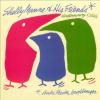


.jpg.0081f0b2a73d1f08c37cc43a227478cb.jpg)





